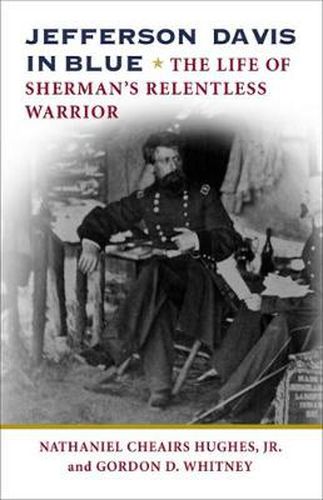Readings Newsletter
Become a Readings Member to make your shopping experience even easier.
Sign in or sign up for free!
You’re not far away from qualifying for FREE standard shipping within Australia
You’ve qualified for FREE standard shipping within Australia
The cart is loading…






Besides his illustrious name, the Union general Jefferson Columbus Davis is best known for two appalling actions: the September 1862 murder of General William
Bull
Nelson – his former commanding officer – and the abandonment of hundreds of African American refugees to the mercy of Confederate cavalry at Ebenezer Creek during Sherman’s march through Georgia in 1864. Historians have generally dismissed Davis (1828–1879) as a reckless assassin, a racist, a journeyman soldier at best, and an embarrassment to the Lincoln war effort. But Nathaniel Cheairs Hughes, Jr., and Gordon D. Whitney shatter the collective memory of
Jef
Davis as a grim, destructive child of war and replace it with a more rounded portrait of a complex military leader. They bring order to the muddle of contradictions that was Davis’s life and offer an impartial profile of the soldier and the man, who must be remembered for his splendid contributions as well as his startling failures.
$9.00 standard shipping within Australia
FREE standard shipping within Australia for orders over $100.00
Express & International shipping calculated at checkout
Besides his illustrious name, the Union general Jefferson Columbus Davis is best known for two appalling actions: the September 1862 murder of General William
Bull
Nelson – his former commanding officer – and the abandonment of hundreds of African American refugees to the mercy of Confederate cavalry at Ebenezer Creek during Sherman’s march through Georgia in 1864. Historians have generally dismissed Davis (1828–1879) as a reckless assassin, a racist, a journeyman soldier at best, and an embarrassment to the Lincoln war effort. But Nathaniel Cheairs Hughes, Jr., and Gordon D. Whitney shatter the collective memory of
Jef
Davis as a grim, destructive child of war and replace it with a more rounded portrait of a complex military leader. They bring order to the muddle of contradictions that was Davis’s life and offer an impartial profile of the soldier and the man, who must be remembered for his splendid contributions as well as his startling failures.